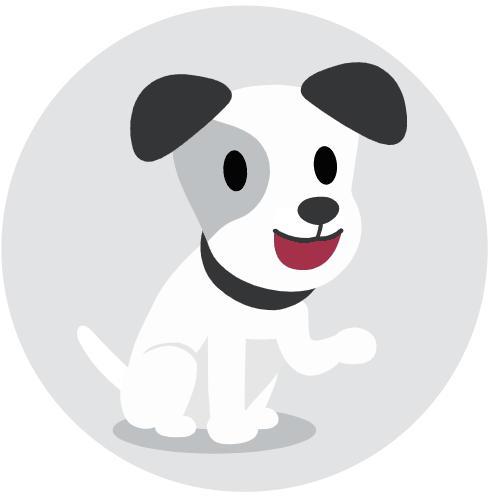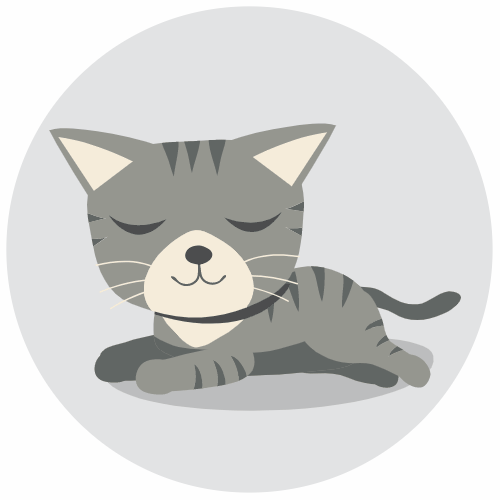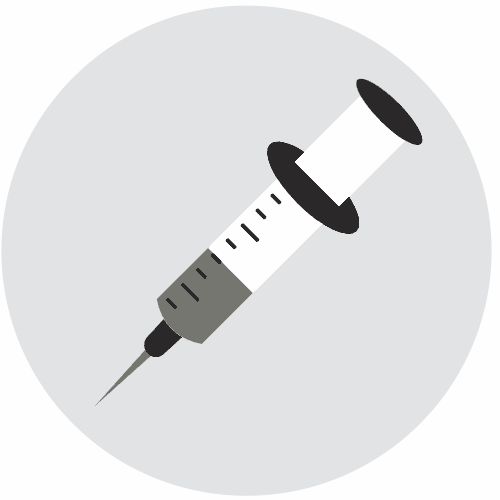Did you just adopt a new puppy or kitten into your family? Our team of veterinarians at Loveland Regional Animal Hospital can’t wait to provide comprehensive wellness exams and all the necessary care to help your new companion have the best possible start.
Contact us to schedule your pet’s first appointment with us today!
What to Expect from Each Exam
Wellness care is essential for every pet, but the best thing you can do for your new puppy or kitten is bring them in to our animal hospital so our experienced team can create a care plan best suited to their needs. Our puppy and kitten wellness care consists of three exams spread out over 3-4 weeks to allow us to track your pet’s growth and development and strengthen their immunity through a customized vaccine schedule.
EXAM ONE
Your pet’s first exam usually occurs when they are 8 weeks old. We can answer any questions and establish their care with us. We will also administer the following vaccines:
Kitten Vaccines
- FVRCP (Feline Viral Rhinotrachetitis, Calici virus, Panleukopenia) #1
- Deworming #1
Puppy Vaccines
- DA2PP (Distemper, Adenovirus, Parvovirus and Para-influenza)
- Deworming
EXAM TWO
When your pet is 12 weeks old, they will have their second exam where we will review your pet’s growth.
Kitten Vaccines
- FVRCP (Feline Viral Rhinotrachetitis, Calici virus, Panleukopenia)
- Deworming
Puppy Vaccines
- DA2PP (Distemper, Adenovirus, Parvovirus and Para-influenza)
- Leptospirosis
- Bordetella
- Last deworming
EXAM THREE
The final exam in your pet’s initial wellness appointments will take place when they reach 16 weeks of age. We will continue to evaluate their growth and overall well-being, administer their final puppy and kitten vaccinations and address adult wellness care.
Kitten Vaccines
- FVRCP (Feline Viral Rhinotrachetitis, Calici virus, Panleukopenia)
- FeLV (Feline Leukemia Virus)
- Rabies
Puppy Vaccines
- DA2PP (Distemper, Adenovirus, Parvovirus and Para-influenza)
- Leptospirosis
- Bordetella
- Rabies

Should You Spay or Neuter Your Pet?
We will discuss recommendations for spaying or neutering your pet during your their final puppy or kitten exam. Every pet is different and requires care that is as unique as they are.
When Should I Let My Puppy Outside for Potty Training?
- Right after you wake up in the morning
- Right before you go to bed at night
- Following time being spent in their crate
- After waking up from a nap
- Time between potty breaks should not surpass 2-4 hours
How Can I Crate Train My Puppy?
- Keep your pup’s “home” area neat and clean
- Situate the crate next to an exterior door so they can easily be let out for a potty break
- Ensure your puppy’s crate is large enough for them to comfortably stand up, turn around, and lay down
How Do I Encourage Good Behavior?
- Avoid yelling at your puppy when they have an accident
- Always praise them when they do something right
- Provide treats, pats, and attention as a reward
How Should I Discourage My Puppy’s Bad Behavior?
Behavioral training can be tricky, but patience and consistency is key. Here are tips to help stop negative behavior.
What Is Safe for My Puppy to Chew On?
- Chewing helps puppies calm themselves down
- A safe chew toy won’t break or have small parts to become a choking hazard
How Can I Stop My Puppy from Barking?
- Scolding your puppy might make the barking worse; instead, ignore unwanted barking and reward quiet behavior
- Train your pup to sit to help fight impulsive barking
How Can I Keep My Puppy from Begging?
- Make sure your puppy has eaten before you eat
- Create a comfy spot away from the table for your puppy to rest in during meals
- Reward your puppy when they don’t beg
Tips for Feeding Your Puppy
Our puppies rely on us for proper nutrition and a healthy diet to provide energy to romp and play.
How Often Should I Feed My Puppy?
- Puppies 6-12 weeks old: 4 times a day
- Puppies 3-6 months old: 3 times a day
- Puppies 6-12 months old: 2 times a day
- Puppies 1 year old and above: 2 half portions a day
What Food Should I Feed My Puppy?
- Consider AAFCO guidelines
- Look for formulas specific to your pet’s specific age and health conditions
- Always ask your vet for their recommendations
What Foods Are Harmful to Puppies?
- Chocolate
- Grapes
- Sugary foods or desserts (cake, cookies, etc.)
- Xylitol (a toxic ingredient found in human food)
What Should I Buy for My Kitten?
- Litter boxes
- A cat carrier
- Food and water bowls
- Scratch posts to help keep your kitten away from your furniture
- Stain and odor remover in case of an accident
What Should I Keep Away from My Kitten?
- Toxic plants
- Household cleaners and sprays
- Human medication
How Can I Help My Kitten Be Comfortable?
- Provide a soft bed and blanket
- Create a small, cozy space
- Various grooming supplies
- Feline pheromone products
How Should I Play with My Kitten?
Playing and interacting with your kitten is a key part of their overall well-being.
How Can I Safely Play with My Kitten?
- Use anything that jingles
- Cotton or plush chew toys
- Feather toys
- Avoid using your hands as toys to keep your kitten from nipping at them
Why Is It Important to Play with My Kitten?
- Playing and interacting can help establish a strong bond with your kitten
- Allows them to release energy
When Should I Play with My Kitten?
- At least 20 minutes a day
- Set aside two times a day to play, if possible once in the morning and once at night
Tips for Feeding Your Kitten
It’s important to provide a balanced and healthy diet for kittens to help them grow and develop into an adult.
When Should I Feed My Kitten?
- Dry food only: Can be left available throughout the day
- Wet food only: Feed at least 4 times per day
- Combination: Feed wet food twice a day; leave some dry food available
What Kind of Food Should I Feed My Kitten?
- Talk to your vet for their recommendations
- Consult AAFCO guidelines
- Look for brands specifically formulated for kittens
Which Foods Are Harmful for Kittens?
- Raw foods (meat, eggs, fish)
- Grapes/raisins
- Chocolate
- Dairy
- Xylitol (an ingredient in human foods that is toxic to pets)





